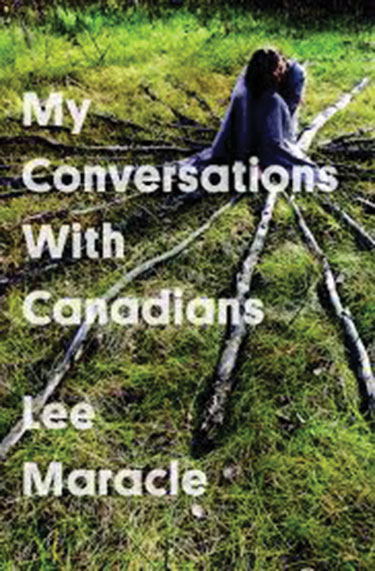
My Conversations with Canadians
Lee Maracle, 160 pgs, Book*hug,bookthug.ca, $20
For those familiar with Lee Maracle’s long list of previous works, it should come as no surprise that the chapters contained herein (billed as “Essais” by Book*hug) are more confrontations than they are conversations. “You are not invited into the text to respond,” she begins her introduction, “and for that I apologize.” The text sets out early on to “scribble a number of chapters in response to a number of common questions,” those being, “What do I call you?, How does colonialism work?, What can I do to help?,” etc. However, it soon becomes clear that the text will not be so simple— Maracle’s style of narration rarely sticks to the question at hand, choosing instead to weigh heavily on digressions, memories, stories, and bits of history or scientific fact that seem pertinent to the evolving topic of conversation. Some might find this natural, or as Maracle puts it, “conversational,” but others may grow frustrated with a lack of central focus, or a dearth of evidence and elaboration for large, potentially contentious claims. In her chapter titled “Marginalization and Reactionary Politics,” for instance, Maracle says that the suffragette movement was rooted in the Haudenosaunee system — whoa! Elsewhere, she believes that the Ojibwe “hole in the sky” narrative has helped form nuclear models for atomic war in North America. These are large, interesting claims with enormous consequences. They deserve more than a passing glance in a loosely-structured conversation.
Those who have enjoyed Maracle’s previous works will enjoy this one, too. Those who are uncomfortable with confrontation should take heed, and probably read this anyway.
